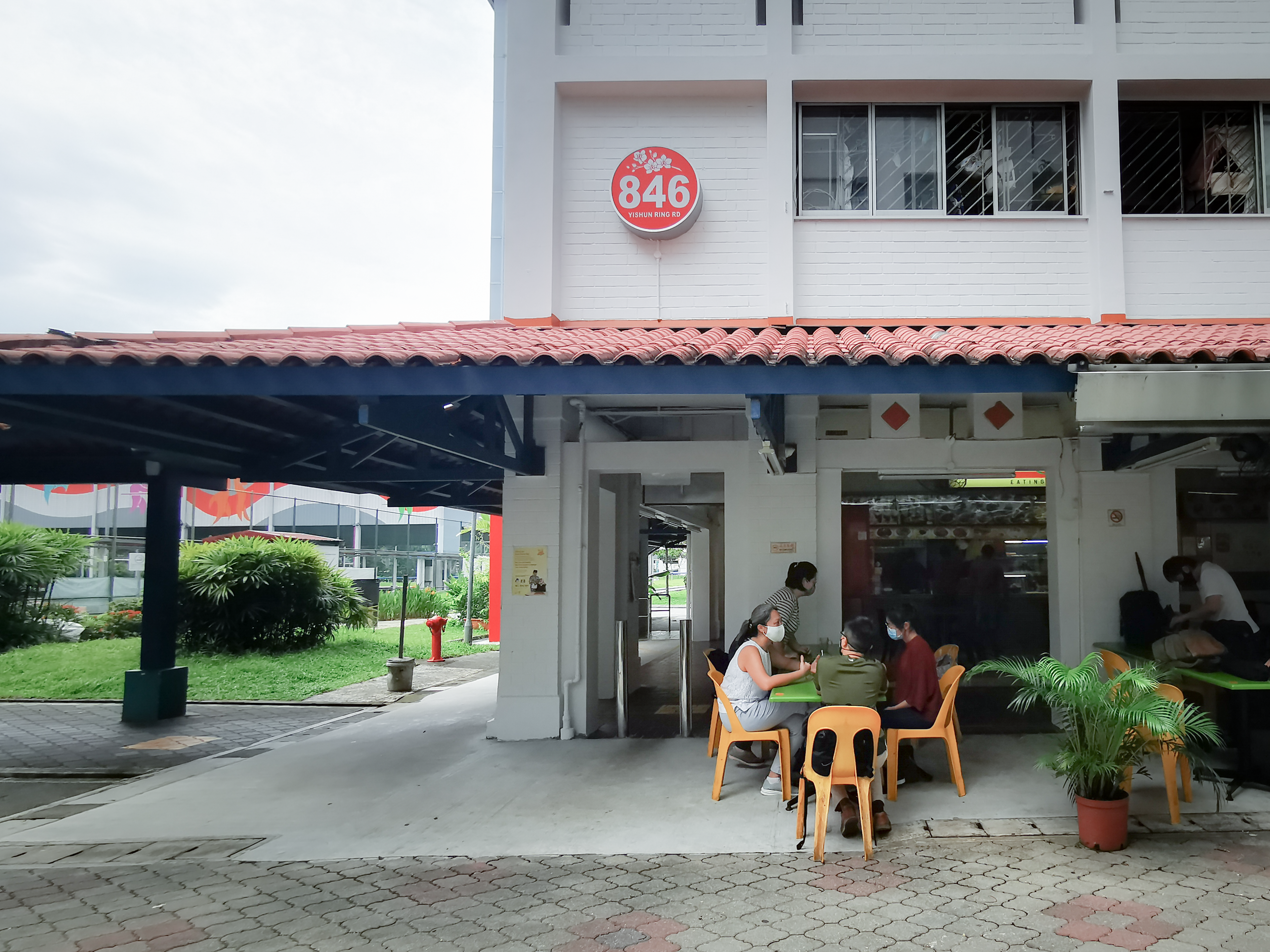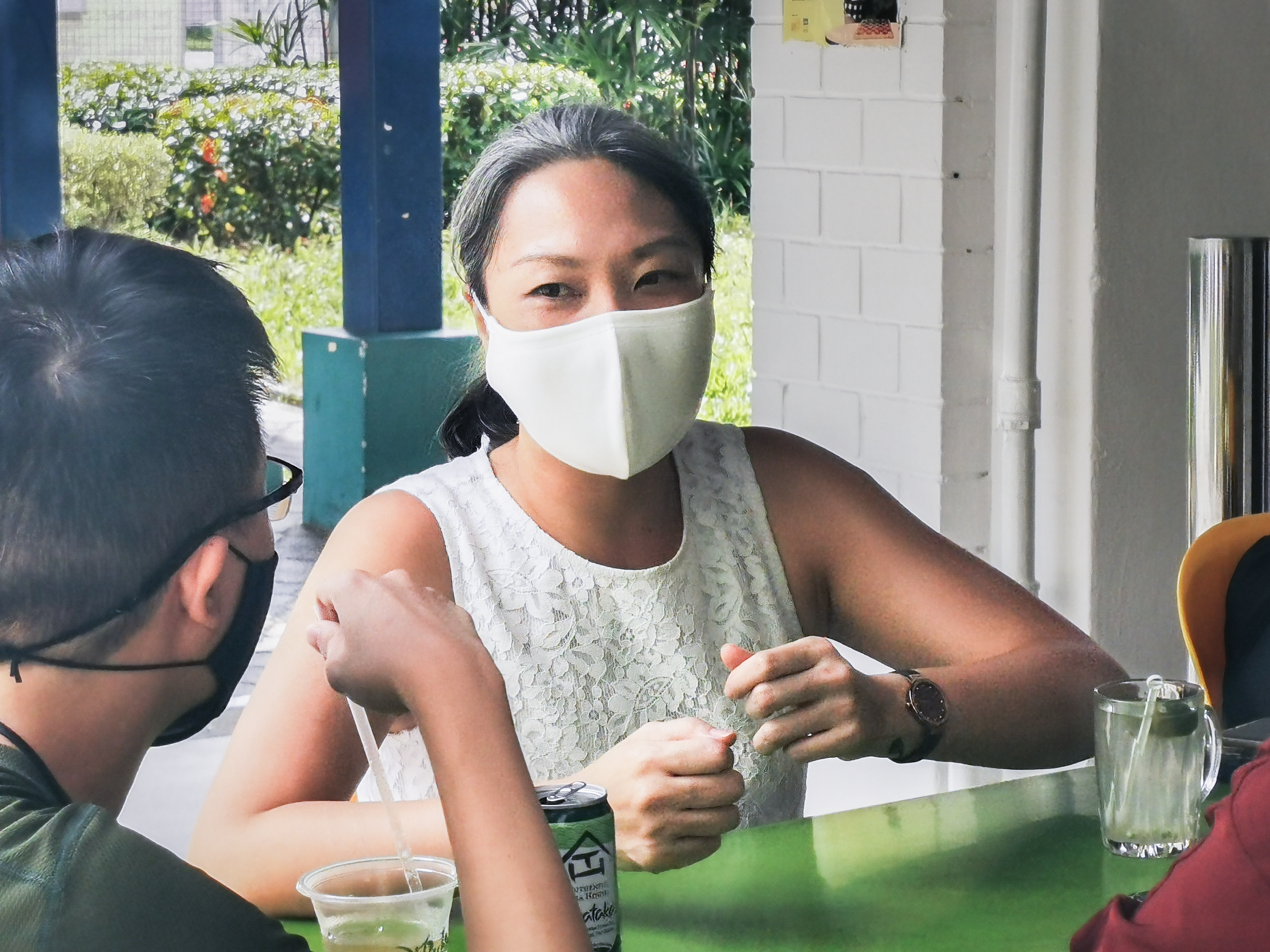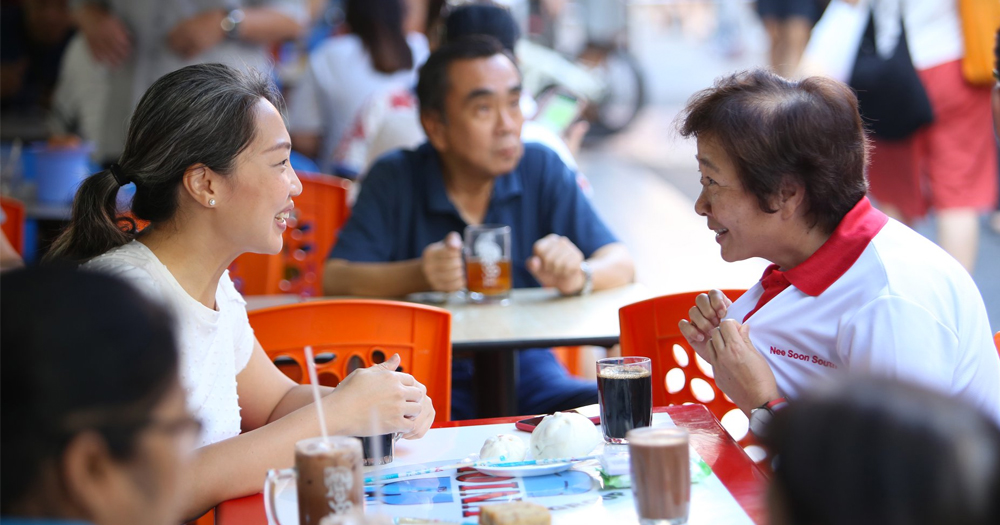Up until three years ago when she was invited to a tea session with the People's Action Party (PAP), Carrie Tan had never thought of entering politics, let alone join the party as a Member of Parliament.
The executive director of Daughters of Tomorrow (DOT) was still heavily focused on the charity that she founded.
More importantly, Tan, a self-proclaimed activist, didn't think she fitted the mould of a typical PAP candidate.
"So from the outside right, oh, you know, PAP candidates very same same, cookie-cutter right? I think I even mentioned that to...Tan Chuan-Jin during one of the tea sessions — they were very nice about it. So I wasn't sure whether I would fit in, like, I'm very guai ka (weirdo) right? Got tattoo, activist... are you sure? Like y'all okay or not?"
She also revealed that she takes after her father, who influenced Tan to think critically and challenge the status quo. She considers him her greatest role model.
"When he was a taxi driver last time, he used to criticise the government a lot," she recalled, adding that he later mellowed down when he became a towkay of a small business.
 Carrie met us at d'Rubinah Eating Corner, in the Nee Soon South ward. Two Yishun residents came up to greet her while we were conducting our interview. Photo by Zhangxin Zheng.
Carrie met us at d'Rubinah Eating Corner, in the Nee Soon South ward. Two Yishun residents came up to greet her while we were conducting our interview. Photo by Zhangxin Zheng.
Tan also raised a few eyebrows with her unconventional introduction when the PAP unveiled her as a candidate, surprising members of the public when she said that she is "quite critical" of wage and financial assistance policies.
Even so, she clarified that as a pragmatic person, she would never join the opposition. She believes that the government does have competent systems and people. It is the details of existing policies that needed enhancement, she added.
"I think it's not about asking questions for the sake of being a rebel, but I think it's really about asking questions that illuminate more answers, and hopefully provoke more thinking around issues."
But still, this "weirdo" managed to pass the selection process and was eventually fielded as a GE2020 candidate in Nee Soon GRC.
Her candidacy is the culmination of a three-year-long deliberation, during which she realised that being an MP is a natural extension of her work at Daughters of Tomorrow which helps low-income women find employment opportunities, and through that, financial independence and social mobility.
Volunteering in India
As to what got her into activism in the first place, it all started when she went to volunteer in India.
Having heard her friend recount stories of volunteering in Africa, an inspired 25-year-old Tan made the 'garang' decision to volunteer with her friends in a country that's closer to home.
"Last time [I was] very naïve, like, 'Oh, I'll just teach English to some kids at an orphanage.' I guess at that age, you didn't realise the dangers."
Instead, what caught Tan's eye was "the very extreme ends of gender discrimination" in India.
"It was quite devastating, really," she said, recalling the babies abandoned at orphanages and train stations.
She recounted the story of a 17-year-old girl who escaped her home after witnessing her father douse her mother in kerosene in an attempted bride-burning. After the girl testified in court against her father, his family sought to hunt her down.
These heartbreaking experiences affected Tan so much that when she returned home, she could not bear to pay for drinks from Starbucks for an entire year because the cost of a beverage amounted to roughly two weeks of income for a family in India.
"To me, being educated in a girls' school, I felt very grateful that I had so many options in life, but what about those who don't? And so, to me, the root cause for freedom of choice for women is financial independence."
 Photo by Zhangxin Zheng.
Photo by Zhangxin Zheng.
Starting Daughters of Tomorrow
After a few years of volunteering in India, Tan decided to focus on advocating for the vulnerable in her own backyard and thus started Daughters of Tomorrow in 2013.
Although Singaporean women do not experience extreme discrimination like those she saw in India, Tan said that mothers and wives here still face certain barriers — predominantly the lack of access to jobs due to caregiving expectations.
And so, one of Daughters of Tomorrow's most impactful efforts was convincing nearly 100 companies, especially those from the retail and F&B sectors, to provide stable, core working hours as opposed to shifts that change every week.
For female employees who have to juggle work and their families' caregiving needs, having stable working hours allows them to better plan for the latter.
Aside from providing job opportunities, one of the first steps in helping the underprivileged is to help them believe in themselves again and help them take the first step out, said Tan.
"You got paktor (go on dates) or not?" She asked suddenly.
"Have you suffered heartbreak before?"
"Ya, so after you kena heartbreak, the next time you want to go out and open your heart — big step right?"
Helping the the vulnerable regain their dignity and confidence is a principle that Daughters of Tomorrow abides by, said Tan.
"It's the key to unlocking their potential," she added.
Still an activist, but now on the inside
Still, while Daughters of Tomorrow has been able to help many women, some issues are just too complex for the charity to solve. These complex issues need to be addressed systemically, said Tan.
When the opportunity to join politics came, Tan found that it was the natural step to take her advocacy work to the next level - straight into Parliament.
"On the community level, it also allows me to reach out to a wider demographic of people who would need help. So it was very timely, actually, I mean in the sense that because of the Covid-19 challenge, I think the key things that residents would be facing are challenges that are livelihood-related. And this is precisely the area that I'm very keen to support the community in."
And so, she is planning to be an activist on the inside, to bring up important issues in Parliament and to work with decision-makers to ensure that the good intentions of policies benefit all.
It is a role in which she feels she can be more effective, she opined.
It is also one that Tan has taken on with gusto now that campaigning is in full swing — so much so that she only gets to see her boyfriend at the break of dawn when he sends her to work, and late at night when he picks her up, she said.
Empathy first
Identifying herself as a "community builder", Tan hopes to create a common purpose for the residents in her ward, help them realise their role within the community, and get everyone to work together.
As for critics and grumblers, Tan thinks that it is still important to listen without judgment and make them feel understood.
"When someone has a grouse, it's because they're suffering some pain or difficulty. So I think it is important to understand what they are going through. I don't think there is a need to say something to them to convince them that the policy is good. I think that is really difficult because they all have their unique life circumstances and backgrounds."
A little bird told her
The night before her first press conference, Tan welcomed an unexpected visitor into her house — a little bird which flew in through the window, presumably taking refuge from a bird of prey.
From the photo she showed us, it looked like a female copper-backed sunbird.
Tan held the bird in her hand and stroked it for "a good two minutes" — an incredulous moment which she felt symbolised her role in politics.
"When people are willing to be vulnerable with you and share with you their feelings and difficulties, you have to handle it very preciously, very gently. This trust is such a delicate thing. So you have to hold it like a little bird in your hands."
Top Photo from Lee Bee Wah/ Facebook
If you like what you read, follow us on Facebook, Instagram, Twitter and Telegram to get the latest updates.

